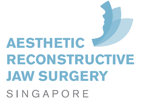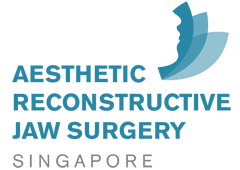Share this
Dental Implant - When should I see a dental specialist in Singapore?
on January 20, 2016

When I first graduated from dental school, my mother asked me if I can do braces for my nephews and nieces. I told her that the undergraduate curriculum does not teach us enough to do orthodontics. I went on to train in Oral & Maxillofacial Surgery in the University of Hong Kong soon after. A few years later, after completing my residency, I came home and again my mother asked the same question. Like before, I told her that I can’t. She then asked, “aren’t you supposed to be a specialist now?” I said, “yes, but a different kind.” So, is there such a thing as a dental implant specialist in Singapore?
In Singapore, the title of “dental specialist” is regulated by the Ministry of Health through the Dental Specialist Accreditation Board (DSAB). No one is allowed to use that title dental specialist in Singapore unless he or she is accredited by the DSAB. Currently there are seven specialties recognized by the Board and Implant Dentistry is not one of them. This is consistent with the practice of most other countries. As such, in Singapore, there is no such thing as a specialist in dental implants. There are, however, specialists who do implants. Oral & Maxillofacial Surgeons, Prosthodontists and Periodontists are the specialists that do dental implants in Singapore.
So, when does a patient need the services of specialists? For the vast majority of cases whereby a missing tooth is to be replaced by a dental implant, there is no significant difference between replacing missing teeth by a specialist or a trained general dentist. However, there are some indications that a specialist is needed. Being a specialist means focusing on one particular aspect and being an expert in it. As such, in the case of dental implants, cases that require specialist care usually means that a team of specialist is needed rather than just one specialist.
Oral & Maxillofacial Surgeon
The oral maxillofacial surgeon (OMS) is needed when there is extensive resorption of the jaw bone that requires major bone grafting. The OMS harvests bone from other parts of the body and graft them to the part of the jaw that is deficient. One of the more common procedure is the sinus graft whereby bone is added to the sinus floor. The OMS is also needed when the nerve in the lower jaw gets in the way of implant insertion and needs to be repositioned through a surgery known as lateralization of the nerve. In very severe cases, the position of the skeletal base needs to be shifted just like in corrective jaw surgery and that requires the expertise of the OMS. That’s not to say that the OMS only does these procedures. OMS perform routine simple cases of implant surgery as well but it is these complex cases that they are indispensable. The OMS, however, does not have specialist skills in prosthodontics ie the restoring of the implants with crowns.
Prosthodontist
The prosthodontist is probably the most under-referred specialist in dentistry. While many general dentists routinely refer complex cases to an OMS for management, not many think it is necessary to refer to a prosthodontist. This is probably because the OMS possessed certain technical skills that is impossible for a general dentist to acquire without going a residency program in a general hospital, while prosthodontic skills can be acquired through short courses and some naturally endowed manual dexterity. But the value of a prosthodontist lies in not just technical skills but in understanding the complexities of the human occlusion and the impact of any restoration to the masticatory function of the patient. This too requires rigorous training in the milieu of a graduate program in a university environment. The real value is a bit less apparent than that of an OMS but no less important especially for complex cases such as full mouth reconstruction with dental implants. Just as an OMS does not have specialist skills in prosthodontics, the prosthodontist does not have specialist skills in surgery.
Periodontist
Finally, there’s the periodontist a.k.a. the gum specialist. As an OMS, I have long wondered at the appropriateness of a periodontist doing dental implants. In the old days, the periodontist is the guardian of teeth. They are the ones that will do everything to save teeth from being extracted by the OMS. Today, periodontics graduate programs are heavily focused on implants. Practicing periodontists are also spending more time extracting teeth and replacing them with implants than trying to save teeth. Apparently, the logic behind this is that implants like teeth, do develop gum disease and the periodontist is most well-trained in the long term maintenance of implants. Furthermore, implant dentistry has evolved to a point where aesthetics is as important as the function and that include the aesthetics of the gum around the implant teeth. Periodontists being the specialist in gum surgery have the requisite training to deal with minor details in the gum contours and morphology that affects the aesthetic outcome of the implant crowns.
Team Approach
Some times, you do not need a full team of specialists. It can be a combination. For example, a trained general dentist may refer the grafting to an OMS but do the implant surgery and crown himself. In other cases, a general practitioner may refer a patient to a periodontist for some gum contouring surgery and implant placement but do the crown himself. There are still some, albeit much fewer in numbers that may place the implants themselves but refer to a prosthodontist to restore the crowns.
Ultimately, there are many options and combinations of different providers to deliver the best work possible. Understanding your own needs will help to decide whether a specialist or a team of specialists is needed.
Share this
- Jaw Surgery (93)
- Dental Implants Singapore (90)
- Orthognathic Surgery (48)
- Replacing Missing Teeth (26)
- Missing Teeth Options (23)
- Underbite (23)
- Bone Grafting (21)
- Costs (18)
- Facial Aesthetics (18)
- Aesthetics (17)
- dental implants (16)
- corrective jaw surgery (15)
- BOTOX (11)
- Dermal Fillers (11)
- Wisdom teeth (10)
- Fixed Implant Dentures (8)
- Loose Dentures Singapore (6)
- Medisave (6)
- sleep apnea (6)
- Braces (5)
- Dental Pain (5)
- Dentures in Singapore (5)
- Loose Teeth (5)
- Tooth Extraction (5)
- jaw deformities (5)
- bimax (4)
- bone graft (4)
- maxillomandibular advancement (4)
- all-on-4 (3)
- bimaxillary protrusion (3)
- chin implant (3)
- facial asymmetry (3)
- full mouth dental implants (3)
- genioplasty (3)
- immediate implant (3)
- removal of an integrated dental implant (3)
- third molars (3)
- wisdom tooth surgery (3)
- My Dentures Don't Fit (2)
- VME (2)
- bone graft healing (2)
- distraction osteogenesis (2)
- medical tourism (2)
- obstructive sleep apnea (2)
- orthodontics (2)
- plastic surgery (2)
- CT guided dental implants (1)
- Double jaw surgery (1)
- Invisalign (1)
- Periodontal Disease (1)
- Permanent Dentures Singapore (1)
- before and after photos (1)
- facial trauma (1)
- fractured dental implant (1)
- oral appliance therapy (1)
- root canal treatment (1)
- veneers (1)
- vertical maxillary excess (1)
- September 2019 (2)
- July 2019 (2)
- May 2019 (2)
- August 2018 (1)
- October 2017 (1)
- September 2017 (2)
- August 2017 (1)
- June 2017 (2)
- May 2017 (4)
- April 2017 (1)
- March 2017 (1)
- February 2017 (3)
- January 2017 (3)
- December 2016 (1)
- November 2016 (2)
- October 2016 (4)
- September 2016 (9)
- August 2016 (5)
- July 2016 (11)
- June 2016 (14)
- May 2016 (6)
- April 2016 (2)
- March 2016 (1)
- January 2016 (7)
- December 2015 (10)
- November 2015 (4)
- October 2015 (9)
- September 2015 (7)
- August 2015 (1)
- July 2015 (6)
- June 2015 (3)
- May 2015 (7)
- April 2015 (5)
- March 2015 (8)
- January 2015 (5)
- December 2014 (7)
- November 2014 (7)
- October 2014 (6)
- September 2014 (8)
- August 2014 (5)
- July 2014 (7)
- June 2014 (8)
- May 2014 (9)
- April 2014 (10)
- March 2014 (6)
- February 2014 (8)
- January 2014 (3)
Subscribe by email
Email subscription




Comments (2)